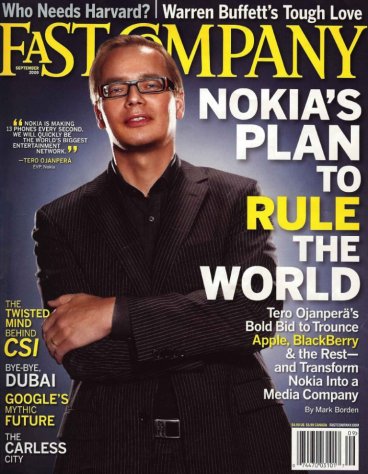More Cowbell
Last week while I was looking through my site referrals I came across an interesting writer. Her name is Elmo Keep.
How could I not dig deeper with a name like that?
Like most good writers both her words and the words she recommends you to read are solid.
Here’s a bit from a piece she wrote on technology and culture called Don’t Fear the Reaper:
A lack of knowledge of the technology being critiqued is evidently not a reason to not espouse your thoughts on it. Aaron Sorkin deigned to use Facebook for a two-week research period in preparing to write the almost hysterically overwrought Social Network. He compared it unfavourably to reality TV, as only two weeks of cursory use will allow. Jonathan Franzen will call Twitter the antithesis of in-depth thought without so much as being connected to the Internet. Roger Ebert is happy to declare video games exempt from the “real art” canon without ever having played one. All these failures of imagination seem to spring from an age old knee-jerk reaction to the New: it is far easier, and takes less time, to dismiss something foreign outright than to properly interrogate and investigate it.
So far, the few pieces I’ve read by Keep resonate a lot with me.
I also dug her piece in The Age on the new HBO series ‘Girls’ which I’ve been watching because, well, my wife’s been watching it.
Keep also has a well-designed website. In the same way I think it’s important for designers to write well, I also think it’s as important for writers to know how to present their work on the web. I don’t expect either to master the other’s craft, but shit, at least try. She seems to be trying.









